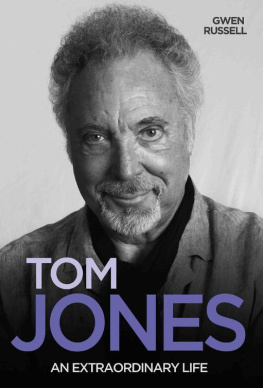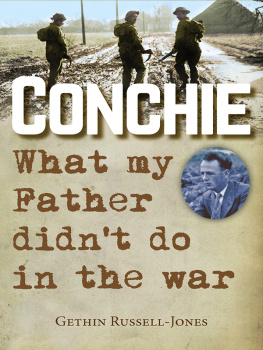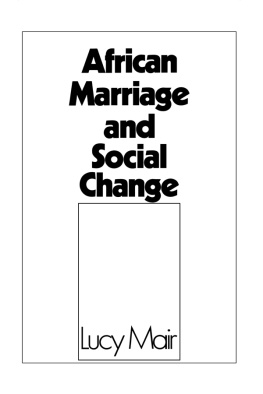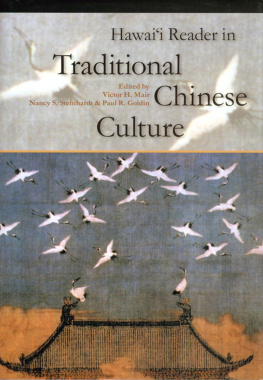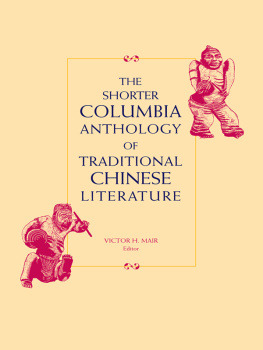I am fascinated by the way Bletchley Parks commitment to absolute secrecy exercised such a powerful and enduring hold over those who worked there what a good thing that Mair Russell-Jones was persuaded to relax it a little, giving us this engaging account of life at the heart of one of Britains most important operations during the Second World War. I greatly enjoyed this book.
E DWARD S TOURTON , B ROADCASTER AND AUTHOR
A gripping story of a strong-minded and courageous Welsh womans wartime experiences at Bletchley Park. Not only does Mair Russell-Jones describe what she actually did at Bletchley Park, but her narrative is enlivened with a wealth of fascinating detail about working conditions, social life, ethos, and how being sworn to secrecy impacted upon her and her relationships for many years to come. Once you pick this book up, you wont want to put it down!
P ROFESSOR A LLAN C HAPMAN , AUTHOR OF S LAYING THE D RAGONS
A vivid tale. The memories kept secret so long before they could be told emerge fresh and sharp.
P ROFESSOR G. R. E VANS , U NIVERSITY OF C AMBRIDGE
Plucked from her home in the Welsh valleys, Mair Russell-Jones quiet and heroic devotion to duty during the Second World War almost cost her her life and reputation among unsympathetic family and friends. It cant be easy telling your own parents remarkable story but Gethin succeeds without a trace of sentimentality. Humbling and inspiring.
S TEVE G ODDARD , C O - EDITOR , S HIP OF F OOLS
Filled with emotion and intrigue, the secret life of one of Bletchley Parks code breakers has been told in such a captivating way to make this a fascinating true-life story. Indisputably the best title Ive read for a very long time.
M ARY H AMMOND , E DITOR , T HE P LAIN T RUTH
This is the story of an ordinary woman from the Welsh valleys made extraordinary by the exigencies of war. Mair Thomas would probably have been a Christian missionary had it not been for the Second World War. She was recruited for the intelligence team at Bletchley Park that cracked the Enigma code and made the Allied victory possible. Only after half a century did she tell the story of her secret life in Hut Six. Her story is told with the aid of her son, Gethin Russell-Jones. Other books have given dramatic, sometimes romanticised, accounts of the intelligence war. My Secret Life is remarkable for its unvarnished account of life at BP monotonous, wearying, unglamorous, and costly. Mair paid that cost till the end of her days. An absorbing read which gets closer to the humdrum reality of war.
D EREK W ILSON , HISTORIAN AND AUTHOR
Text copyright 2014 Mair Russell-Jones and Gethin
Russell-Jones
This edition copyright 2014 Lion Hudson
The right of Mair Russell-Jones and Gethin Russell-Jones to be identified as the authors of this work has been asserted by them in accordance with the Copyright, Designs and Patents Act 1988.
All rights reserved. No part of this publication may be reproduced or transmitted in any form or by any means, electronic or mechanical, including photocopy, recording, or any information storage and retrieval system, without permission in writing from the publisher.
Published by Lion Books
an imprint of
Lion Hudson plc
Wilkinson House, Jordan Hill Road,
Oxford OX2 8DR, England
www.lionhudson.com/lion
ISBN 978 0 7459 5664 0
e-ISBN 978 0 7459 5665 7
First edition 2014
Some of the names in this book have been changed to protect identities.
Acknowledgments
pp. 64-65: Extract from Winston Churchills 4th June
1940 speech, copyright Winston Churchill. Used by permission of Curtis Brown.
Front cover image Crown Copyright. By kind permission of Director GCHQ.
Back cover image (Bletchley Park) chrisdorney/iStockphoto.
A catalogue record for this book is available from the British Library
Preface
This is the story of my mothers outrageous secret. Not a minor indiscretion or gross scandal; certainly not a chronicle of guilt. Thankfully my mother has never done guilt. This is an account of a confidence that she kept to herself for more than five decades, from the age of twenty-four until eighty-two. It is a ridiculous tale of silence, involving a young woman from the Welsh valleys and her role in dismantling the Third Reich.
It begins with two incidents. The first involves ill health; much of her life has been framed by often serious sickness. The second relates to my discovery of a book which features a photograph of her.
When, at the age of eighty-two, Mair chooses to break her silence and starts to reveal her secret past, she is mown down by a debilitating stroke after surgery on a hiatus hernia. She spends six months unconscious in an Intensive Care Unit. Her breathing is mechanically aided by means of a tube fed down her windpipe and into her lungs. Liquid food, high in protein, is pumped into her system at various points in the day.
It is clear, to the medical staff at least, that these are her final days and so the family drives and flies to the hospital from various points around the UK. This proves to be a false alarm and we return to our homes to wait for the alert. When finally we receive a phone call from the hospital informing us that she now has septicaemia, a grand, Latin-sounding word for blood poisoning, we of course understand that we are now in the end times of her life. The machine will be turned off with my fathers consent and my mother and all her stories will die with her. Then comes the day when we are informed that she will almost certainly die. Once more the family gathers around the bedside, choking back the tears as our blind father quietly holds and strokes his wifes hand. She has not opened her eyes in months and there have been no responsive signs. However, on this day, when everything is at its darkest, she opens her eyes.
In order to prevent suffocation or infection, her tongue has been fastened outside her lips for most of the period in intensive care. But she is now looking at us; mute and vulnerable. Somehow her frail body, weakened by decades of sometimes serious ill health, has fought off the septicaemia. This is her D-Day.
She rallies, begins to recover, and after a few days the feeding pipe is removed. Still in a greatly weakened state, her breathing is laboured and a tracheostomy performed. This is an incision into her windpipe, which allows her to take in air more easily through an inserted tube. With the aid of this device she is able to breathe unaided. In the days, weeks, months and years that follow, my mother has to learn to speak again. Her powers of speech have been scrambled by the stroke, but it becomes evident that this will not be a permanent affliction. More serious is the damage to her larynx. These muscles had largely atrophied because of the tube in her oesophagus, and its lack of use for six months. For a long time, she can only manage words, names and very short sentences in a whisper. Then comes a squeak, followed by a weak tone.






